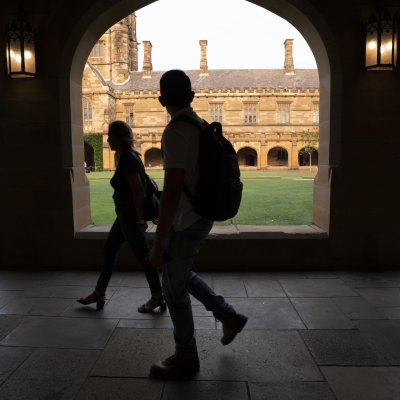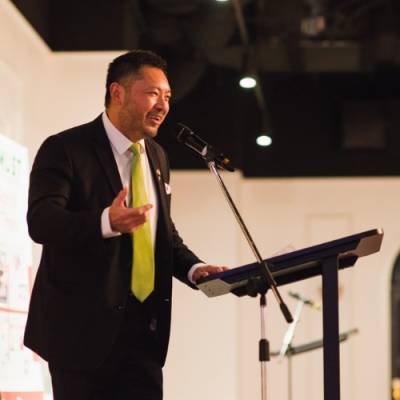Refine results
-
Race Discrimination9 May 2024News story

Commission to lead historic anti-racism study into universities
The Australian Human Rights Commission will lead a groundbreaking independent study to better understand and address the dangerous prevalence of racism at universities, after receiving $2.5 million in Commonwealth funding. Race Discrimination Commissioner, Giridharan Sivaraman said the study will be “comprehensive”, with university students and staff to share their experiences of racism, and… -
Commission – General4 March 2024E-bulletin (Monthly)
March 2024: Commission news | President's letter
Commissioner June Oscar AO finishes her term as Aboriginal and Torres Strait Social Justice Commissioner early next month. Friday 8 March marks International Women’s Day, and Sex Discrimination Commissioner Anna Cody will attend the 68th Session of the Commission on the Status of Women in New York. -
14 December 2012Book page
Appendix 1: Case studies
Until December 2009, Ali Jasmin lived with his family in Bala Uring, a small village on the island of Flores, Indonesia. His family bought fish from the local fishermen and sold them at the market. Ali had completed seven years of schooling and worked as a fisherman in a little town not far from his home. -
14 December 2012Book page
Annual Report 2008-2009: Chapter 1
The objective of the Commission’s new strategic plan is to build on the Commission’s strengths so that it is in a better position to help build an Australian culture where human rights are understood, respected and enjoyed by ‘everyone, everywhere, everyday’. -
Employers19 February 2015Quick Guide
Work-related events
An employer can be liable for acts of discrimination or harassment, including sexual harassment, that occur in the workplace or in connection with a person’s employment. This is called ‘vicarious liability’. It means that employers can be liable for acts by their employees that occur at work-related events, such as conferences, training workshops, business trips and work-related social… -
Commission – General14 December 2012Speech
President speech: Mandatory immigration detention of children in Australia: how far have we come and where to from here? (2010)
I would like to begin by acknowledging the Gadigal People of the Eora Nation, the traditional owners of the land on which we meet, and pay my respect to their elders past and present. -
Rights and Freedoms3 March 2023Speech
Making rights a reality: the need for a Human Rights Act for Australia
This presentation, on International Human Rights Day, advances the case for a Human Rights Act for Australia, reflecting on experiences during COVID and the difference a Human Rights Act may have made. -
14 December 2012Book page
Indigenous Deaths in Custody: Part E Profiles: Indigenous Deaths in Custody 1989 - 1996
The deceased was serving a life sentence for murder, having been convicted on 26 April 1978. In April 1991 he was granted permission to attend the University of Tasmania to undertake a bridging course. The deceased signed an agreement which regulated his attendance at the course. He breached the agreement on 15 August 1991 when he left his authorised custodian and consumed alcohol. He was… -
14 December 2012Book page
DIAC Response to the 2011 Australian Human Rights Commission Statement on Immigration Detention at Curtin
The Department of Immigration and Citizenship (DIAC) welcomes the opportunity to respond to the Australian Human Rights Commission (AHRC) Public Statement on Immigration Detention in Curtin. -
Legal3 July 2019Webpage
Freedom of Information disclosure log
The Australian Human Rights Commission is required by section 11C of the Freedom of Information Act 1982 to publish a disclosure log on its website. The disclosure log lists information which has been released in response to an FOI access request. This requirement has applied since 1 May 2011. -
Complaint Information Service14 December 2012Publication
ADR as a tool for social change: a discussion (2008)
Human rights and anti-discrimination law in Australia, as in many countries in the Asia Pacific, provides for complaints about discrimination and violations of human rights to be resolved by conciliation. The use of Alternative Dispute Resolution (ADR) in this context has been criticised. In particular, it has been claimed that the individualised form of the complaint process, coupled with the… -
LGBTIQ+13 July 2018Webpage

Background and terminology
Protecting the human rights of people born with variations in sex characteristics in the context of medical interventions Background In Australian, some people born with variations in sex characteristics may be subject to medical interventions without themselves providing informed consent. It has been reported that this may be done where there is no medical need - for example, it may take… -
14 December 2012Book page
2011 Social Justice and Native Title Reports - A Community Guide
In my role as the Aboriginal and Torres Strait Islander Social Justice Commissioner (Social Justice Commissioner), I am required to prepare two reports on Aboriginal and Torres Strait Islander peoples’ human rights issues each year – the Social Justice Report and the Native Title Report. -
Rights and Freedoms14 December 2012Publication
Implementing the Optional Protocol to the Convention against Torture : Options for Australia
A report to the Australian Human Rights Commission by Professors Richard Harding and Neil Morgan (Centre for Law and Public Policy, The University of Western Australia) -
14 December 2012Book page
HREOC Report No. 35
Pursuant to section 11(1)(f) and 20(1) of the Human Rights and Equal Opportunity Commission Act 1986 (Cth), I attach a report of my inquiry into a complaint against the Commonwealth of Australia (Department of Immigration and Multicultural Affairs) and GSL (Australia) Pty Ltd. I have found that acts done on behalf of the Commonwealth were contrary to the human rights of the complainant as… -
LGBTIQ+3 July 2018Webpage
Terminology
The Australian Human Rights Commission recognises that respect for individuality impacts on a person’s self-worth and inherent dignity. The use of inclusive terminology respects individuality and enables visibility of important issues. The Commission supports the right of people to identify their sexual orientation and gender identity as they choose. The Commission also recognises that… -
Disability Rights28 November 2023News story

Commission welcomes new Disability Discrimination Commissioner
The Australian Human Rights Commission welcomes the appointment of Rosemary Kayess to the role of Disability Discrimination Commissioner. “On behalf of Commissioners and staff I warmly welcome Ms Kayess to the Commission. She is a leading disability and human rights lawyer who has been extremely influential in her work in international human rights law for people with disability,” said… -
14 December 2012Book page
Management accountability
The Commission, as a legal entity, is constituted by the President and the Commissioners. The President is the senior member of the Commission. The Commission meets every six-to-eight weeks to make its decisions. All meetings are minuted. -
Race Discrimination9 October 2023News story

Farewell to the Race Discrimination Commissioner
The Commission President and colleagues have joined to farewell and celebrate the achievements of Race Discrimination Commissioner Chin Tan -
Aboriginal and Torres Strait Islander Social Justice1 March 2016Publication
Toomelah Report (1988)
The Toomelah community of five hundred Aboriginal people endures appalling living conditions which amount to a denial to them of the most basic rights taken for granted by most other groups in society, and by other Australian communities of similar size. Their houses are substandard and overcrowded, actually contributing to a range of diseases. The community has for decades lived without an…
Pagination
- First page « First
- Previous page ‹ Previous
- …
- 4
- 5
- 6
- 7
- Current page 8
- 9
- 10
- 11
- 12
- …
- Next page Next ›
- Last page Last »
